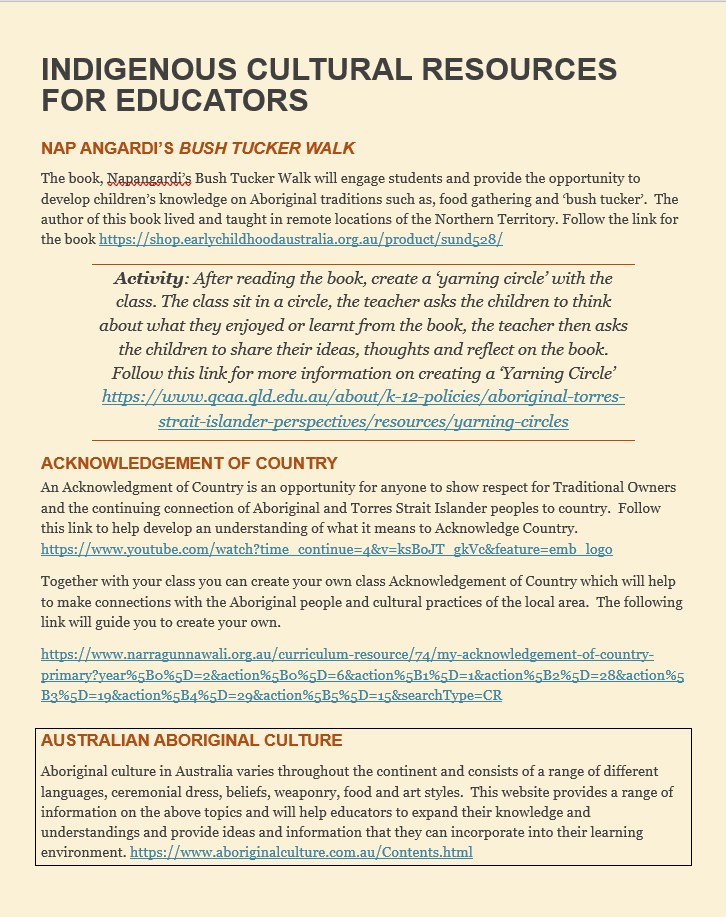4 Meaningful Indigenous cultural resources
Kelly Barden

Download the resource: Barden Indigenous Resource
Rationale
The purpose of this professional resource is to provide educators the opportunity to access meaningful Indigenous cultural resources. The compilation of resources will provide educators with ideas of how to include Aboriginal and Torres Strait Islander cultures into their classrooms and assist them in further developing their own knowledge and understandings. The resource contains clear links to books, activities and information that will help support educators’ engagement with their local Aboriginal and Torres Strait Islander community and assist them in making meaningful connections with Indigenous children in their class.
This resource focuses on educators who require more exposure and access to Indigenous cultural resources that are meaningful to Indigenous children. It is important for educators to have a solid understanding of the cultures in their classroom as it enables them to provide greater learning opportunities for all children. There are strong links between positive self-identity and wellbeing, therefore it is important for educators to continuously develop their knowledge around cultures especially the cultures of Aboriginal and Torres Strait Islander nations (Department of Education and Training, 2011). The professional resource connects with the ‘8 Aboriginal Ways Learning Framework’ which involves eight interconnected pedagogies that can assist educators in supporting Aboriginal and Torres Strait Islander children’s learning (AITSL, 2017).
Using this framework along with the resource provided will assist educators in making learning more meaningful not only to Aboriginal and Torres Strait Islander children but to all the children in the class. The resource provides opportunities for educators to engage and build connections with the local Indigenous community or communities while also exploring their culture, heritage and backgrounds. Through using this resource educators will also be able to enhance their cultural knowledge which will assist them in building collaborative partnerships with children, families and the community which enhance children’s inclusion, learning and wellbeing
Links
Early Years Learning Framework (DEEWR, 2009)
- Outcome 2: Children are connected with and contribute to their world
- 2.1 Children develop a sense of belonging to groups and communities and an understanding of the reciprocal rights and responsibilities necessary for active community participation.
- 2.2 Children respond to diversity with respect.
National Quality Standard (ACECQA, 2018)
- Quality Area 6: Collaborative partnerships with families and communities
- 6.2.2 Effective partnerships support children’s access, inclusion and participation in the program
- 6.2.3 The service builds relationships and engages with its community.

